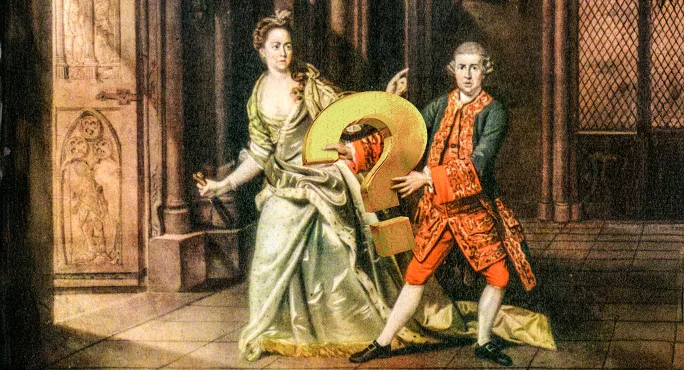What’s the point of learning English?

“When am I actually gonna use this, sir?” The student was not the first - and won’t be the last - to ask me this question. And if you’re an English teacher, you’ve heard it hundreds of times.
It’s not a bad question either. After all, what employer is going to ask you about Lady Macbeth’s tragic downfall?
What’s more, it’s difficult teaching a subject with no right answers. It can be hard to articulate for your students the value of something where no one can tell you, “Yes, that’s right, 100 per cent, perfect score.”
That’s why students with a natural affinity for physics, chemistry or maths, where you can find an indisputable answer, often bring a healthy dose of scepticism to the study of English. At the international school in Dubai where I work, students’ minds tend to lean more towards engineering and entrepreneurship than imagery and iambic pentameter.
But it’s not just those who favour science, technology, engineering and maths (Stem) who can struggle to see the goalposts in English - teachers themselves sometimes disagree about what makes a piece of writing judicious, convincing, perceptive; basically, dead good.
Yet we disagree precisely because that’s what makes it so important. This why we know what we teach is so important.
Real-world skills in English
Literary analysis requires the forming of rational arguments, reasoned and expressed in precise language - a skill relevant to everyone who operates in the real world and has conversations with people with different brains to their own.
The study of English is, indeed, about interpretation, reasoning, persuasion, style and craft. To borrow from the left-brain, right-brain paradigm, English asks students to be receptive to moods, emotions and shades of meaning within a text using the right of their brain, then to order and articulate those ideas rationally using the left.
This is not easy. The human brain is messy. As we read, our brains produce a jumbled mass of ideas and associations that whir around busily in our heads, fighting for centre stage.
What we teachers do is force students to name, line up and present those pesky thoughts to their examiner as a logical line of argument.
That leads to the next skill - sometimes it’s more about rhetoric than reason. Every English teacher knows that these “well-developed arguments” are often created in reverse: find the sections that fit an argument, not the other way around.
After all, if you look hard enough in a text, you’re pretty much guaranteed to find evidence of whatever you’d decided was going on in the first place.
Operating in the grey areas
So why do we treat literary analysis and interpretation as empirical reasoning? To create the ability to form arguments that cannot be toppled? Of course, any answer given can always be toppled, because just as there are no right answers, there are also no wrong ones.
But is that a bad thing? Perhaps more than anything else, literature is about operating in the grey areas. It’s about imposing meaning where, scientifically speaking, there isn’t one.
We do this when we read someone’s story and try to make sense of it in our head. We do this when we try to define and articulate our story about what we just read. But we also do this when we are asked to write our own.
And this is perhaps the truest value of it all. Life is stories. Every day we wake up, we write the story of who we are, who we want to be, what we want to do and why we want to do it.
At school, life is ordered for you. Your day is neatly structured and routined. Your work is planned and delivered by your teachers. Your purpose for being there is defined and reiterated daily by your parents, by your peers, by yourself.
The value of our own voice
But the unassisted adult world asks us to operate in the grey areas. We choose where we live, who we spend time with, what we do each day and how long we do it for. Yes, work may shape our weeks, but who decides what the work is? Who truly defines its purpose other than ourselves?
In life we have to do the best with what we’ve got, make decisions based on the information we have, decide how we feel about it and make our case. Literature teaches us how to be comfortable with contradiction, to argue without certainty, to make meaning when there isn’t a clear answer.
Literature teaches us the value of our own voice. It makes us look to ourselves for the right answer. And in a world that cannot be predicted, where what is right and what is wrong are nebulous notions, this is perhaps the most valuable skill of all.
Jack Dempsey is an English teacher at GEMS Wellington International School in Dubai
For essential weekly intelligence on the international schools sector, sign up for the Tes International newsletter
Register with Tes and you can read two free articles every month plus you'll have access to our range of award-winning newsletters.
Keep reading with our special offer!
You’ve reached your limit of free articles this month.
- Unlimited access to all Tes magazine content
- Save your favourite articles and gift them to your colleagues
- Exclusive subscriber-only stories
- Over 200,000 archived articles
- Unlimited access to all Tes magazine content
- Save your favourite articles and gift them to your colleagues
- Exclusive subscriber-only stories
- Over 200,000 archived articles
topics in this article



